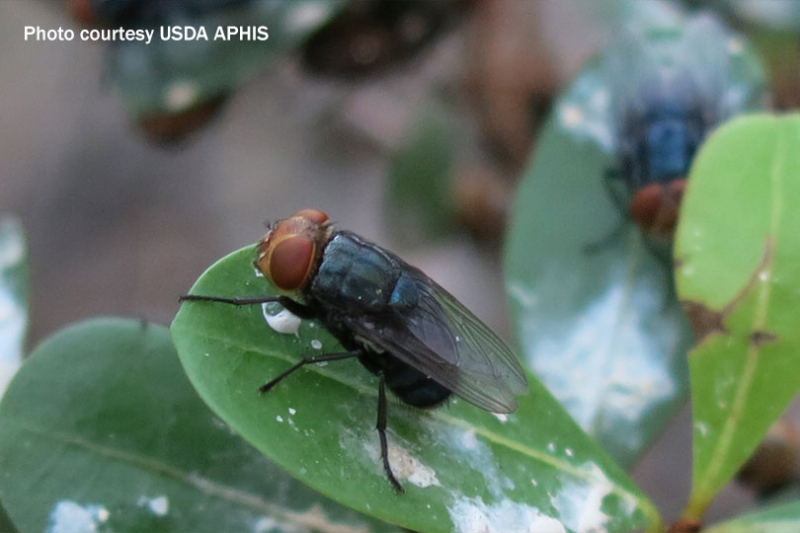By Julie Tomascik
Editor
The U.S. Department of Agriculture (USDA) suspended livestock imports from Mexico to prevent the spread of the New World screwworm (NWS) into the U.S.
“Due to the threat of New World screwworm, I am announcing the suspension of live cattle, horse and bison imports through U.S. southern border ports of entry effective immediately,” U.S. Secretary of Agriculture Brooke Rollins posted on X. “The last time this devastating pest invaded America, it took 30 years for our cattle industry to recover. This cannot happen again.”
The announcement is the latest move to stop the screwworm’s advance, which now threatens the Texas and broader U.S. cattle industry. The pest has been detected on Mexican farms about 700 miles from the U.S. border.
A similar suspension was enacted last November following the initial detection of the pest in Mexico. Imports, however, later resumed in February under new protocols that included inspections on both sides of the border.But there has been an “unacceptable northward advancement” of the screwworm, USDA said.
“Texas Farm Bureau is encouraged that U.S. Secretary of Agriculture Brooke Rollins and the U.S. Department of Agriculture recognize the seriousness of this situation and are taking necessary precautions to safeguard our country from this animal health threat by closing the ports,” Texas Farm Bureau President Russell Boening said.
The import suspension will continue on a month-by-month basis until a significant window of containment is achieved, according to USDA.
The border closure and subsequent supply chain disruptions will create economic and market instability for U.S. farmers and ranchers. However, cattle organizations and agency officials noted the temporary strain is far less severe than the consequences of the pest establishing itself in the U.S.
“The protection of our animals and safety of our nation’s food supply is a national security issue of the utmost importance,” Rollins said. “Once we see increased surveillance and eradication efforts, and the positive results of those actions, we remain committed to opening the border for livestock trade. This is not about politics or punishment of Mexico, rather it is about food and animal safety.”
USDA said effective eradication requires a three-pronged approach: robust active field surveillance with education and outreach to ensure prevention, treatment and early detection; controlled animal movement to limit spread; and sustained sterile insect dispersal.
Suspending livestock transport through southern ports of entry will help slow the pest’s movement and allow officials to reassess the effectiveness of current mitigation efforts.
NWS maggots burrow into the flesh of living animals, causing serious injuries and often death to the animal. They can infest livestock, wildlife, birds and pets.
The pest was eradicated from the U.S. in 1966 using a technique that remains central to today’s control efforts.
That method involves releasing sterile male flies into the environment. Because female screwworm flies mate only once in their lifetime, mating with a sterile male produces no offspring, gradually reducing the population until it is eliminated.
To help contain the current outbreak, USDA aircraft are releasing sterile flies over affected areas in Mexico. But with the threat advancing northward, Texas Farm Bureau is calling for stronger, long-term solutions.
“In addition, the United States must act on construction of a domestic sterile fly facility to stop movement and combat the pest throughout this continent,” Boening said.
Farm Bureau will continue working with USDA and other stakeholders to support surveillance, containment and long-term eradication efforts that protect U.S. livestock and the rural economy.


Leave A Comment